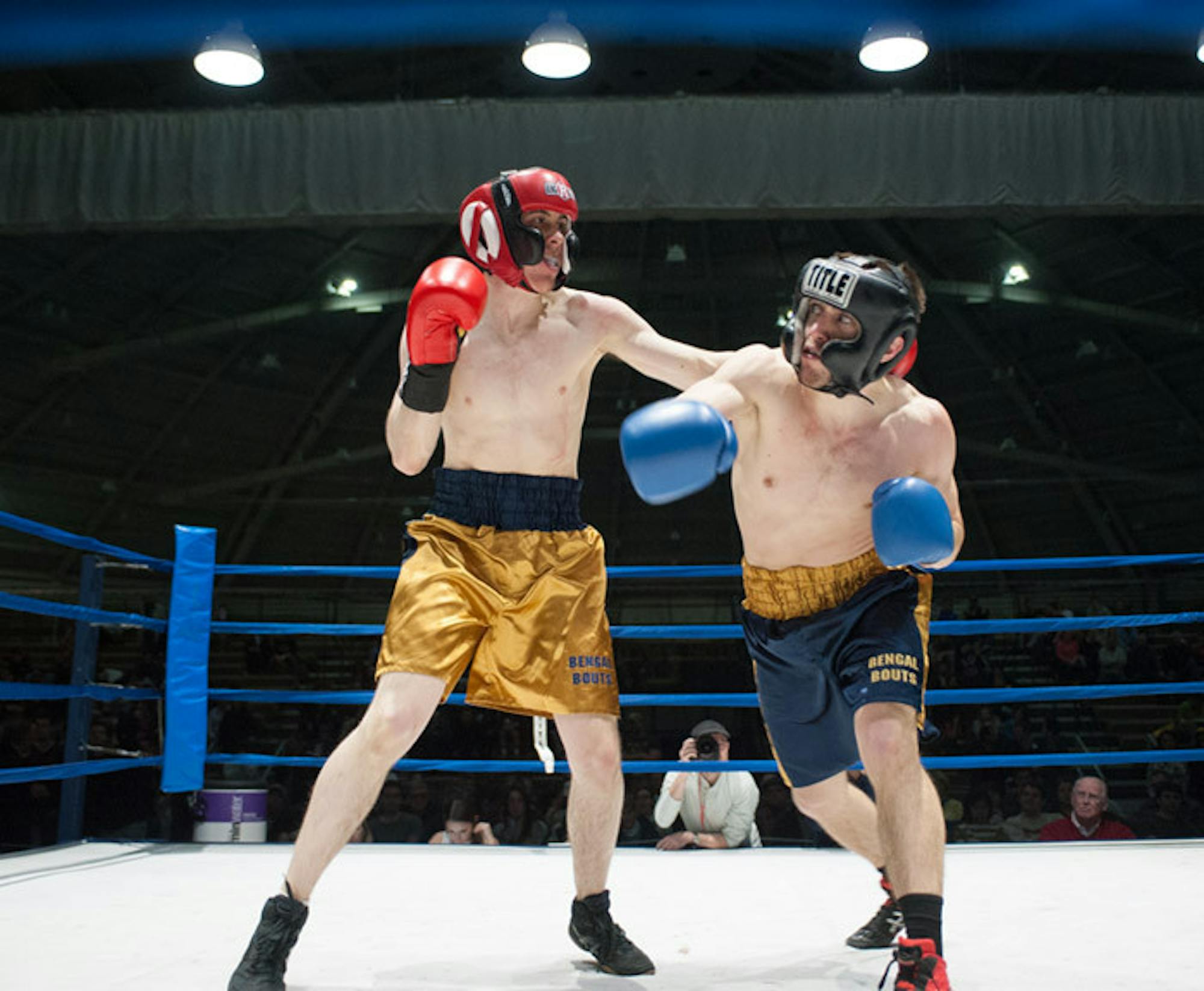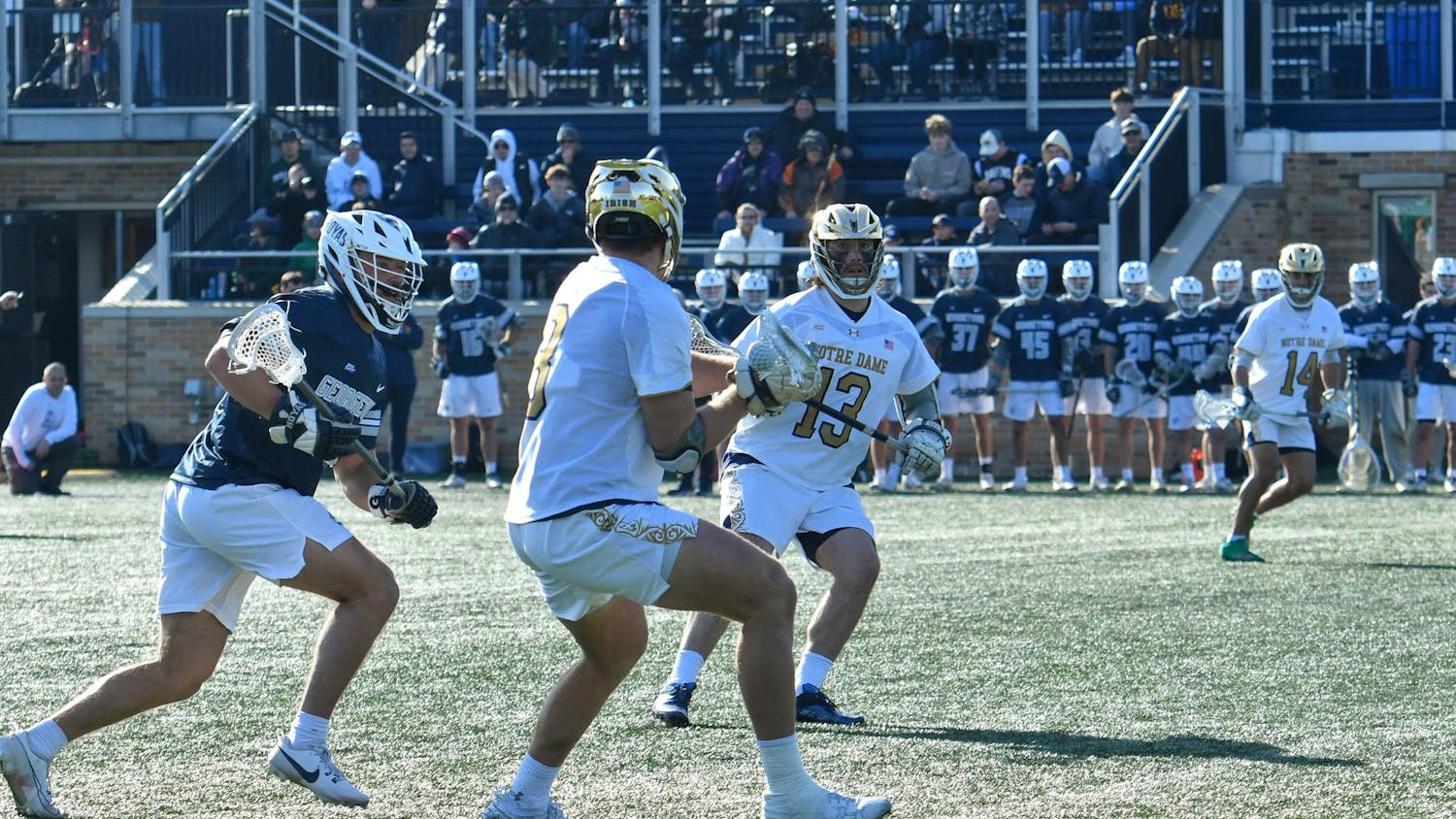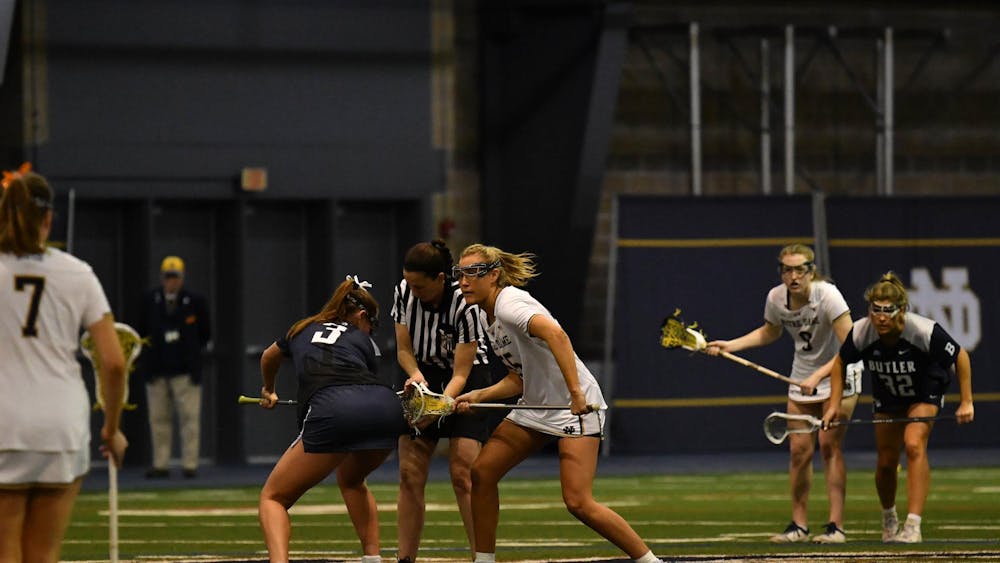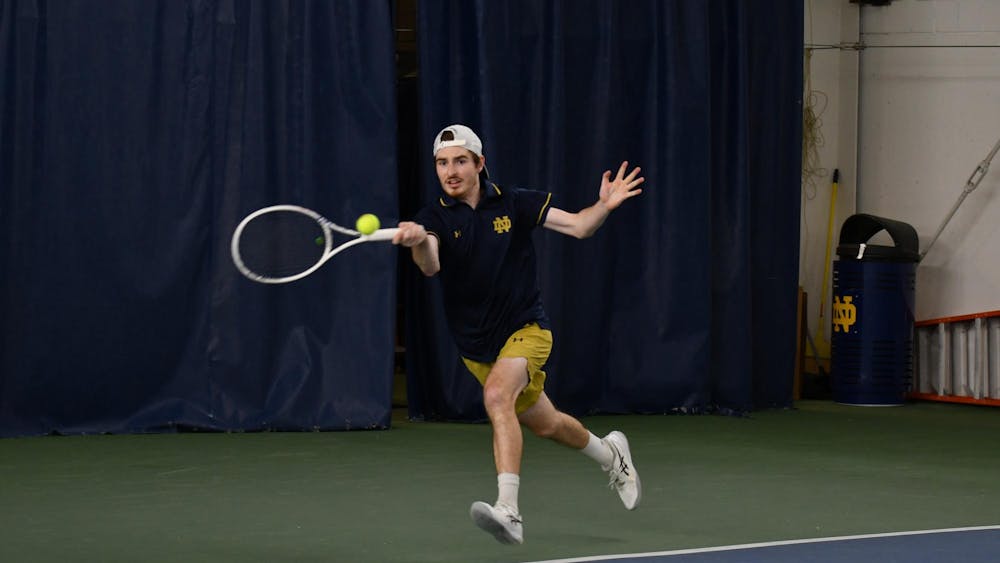Bengal Bouts has a lasting effect on most of its participants, but the mark it left on senior captain Ben Eichler is permanent. All you need to do is look at his triceps, where the club’s motto, “Strength and Daring,” is tattooed in the Bengali language.
“Apparently when it was time last year to pick the captains for the club this year, someone said ‘Ben has the motto tattooed on him, so case closed,’” Eichler said.
Of course, the tattoo isn’t the real reason the Richmond, Va., native and former St. Edward’s resident was chosen as captain. What it symbolizes is the broader quality that made Eichler a leadership candidate: dedication.
Eichler certainly meets that requirement. After losing in the finals of the 144-pound division his sophomore year, he rebounded to win the title last year. He did not box before college, but had some fighting experience thanks to his experience in jujitsu and tae kwon. He had no intention of joining boxing until the captains of the Irish club rugby team urged him to do so during his freshman year. After his first fight, he never went back to rugby or any other sport.
Since then, Eichler has done extensive training and developed a unique style of fighting.
“My fighting style is very unorthodox, especially by Bengal Bouts standards,” Eichler said. “I’m very much about movement and speed and precision. The guys that I trained with at home were all Mexican, and [there’s] a distinctly Mexican style of boxing, with looseness and head movement and a technique that some people might call sloppy, but is actually refined to work in that smoke-and-mirrors kind of way. It’s about manipulating the opponent psychologically and inspiring fear and confusion, not about crisp technique.”
Eichler places an emphasis on a composed mental state during fights. The right psychological perspective can be a much greater asset than strength or size when going three rounds in the ring, he said. In addition, mental strength is likely to be more useful than how strong your right hook is in the years after graduation from Notre Dame, Eichler said.
“It got me into meditation and a lot of spiritual practices that I will continue to pursue after boxing,” Eichler said. “That level of stress is something I’m probably never going to face again, so it’s like attitude training for the rest of life, basically.”
He cites the intangibles that boxing has taught him as a significant, if not primary, factor in his deep investment in Bengal Bouts.
“One of the reasons I’m so committed is because boxing has an incredible spiritual impact on you if you’re willing to let it,” Eichler said. “Getting up there and fighting someone in front of hundreds, or in the case of the finals last year, thousands of people, is incredibly stressful. Most guys, including myself as a freshman and sophomore, will break under that pressure. You lose all semblance of technique, you lose all semblance of composure, and strategy goes out the window. The process of preparing to handle that kind of stress and developing the ability to do it is really valuable.”
Eichler said he sees his beliefs about the effects of the psychological demands of boxing validated by every fighter that steps in the ring, even those who are not successful – or perhaps in the losing boxers especially.
“The impact Bengal Bouts has on guys is huge, even if they only do it for one year,” Eichler said. “They may get beaten up in their first fight, but they got in there and they did it, and especially if they toughed out the whole fight, the moral elevation that I think comes from facing something that is much more scary than most people are ever going to do is a benefit that will ripple through those guys’ lives.”
Though Eichler said he likes to look at the advantages the fighters get in the long-term, what he relishes most about the sport is the feeling it inspires within him, whether it is in sparring or in a finals bout watched by thousands.
“My favorite part is the high that you get when you experience being in that state of flow where you are doing physically impressive things without even thinking about it,” Eichler said. “That, to me, is really rewarding. That development of skill and that expression of skill that you’ve accumulated over three or four years here [is rewarding].”
His affection for the sport is matched by his respect for the club and its mission. Eichler expressed joy in helping the deserving missions and people in Bangladesh, as well as pride in the values that the bouts promote.
“I think we definitely represent ideals that you’d like to be expressed more, [such as] that sort of teamwork and camaraderie and competitiveness, but competitiveness with goodwill towards each other,” Eichler said. “You’re training the guys that you’re going to fight, even if you’re not a captain … which is a really odd and unique situation. I think that sort of level of teamwork and commitment to each other is great and encompasses the best that Notre Dame has to offer.”













